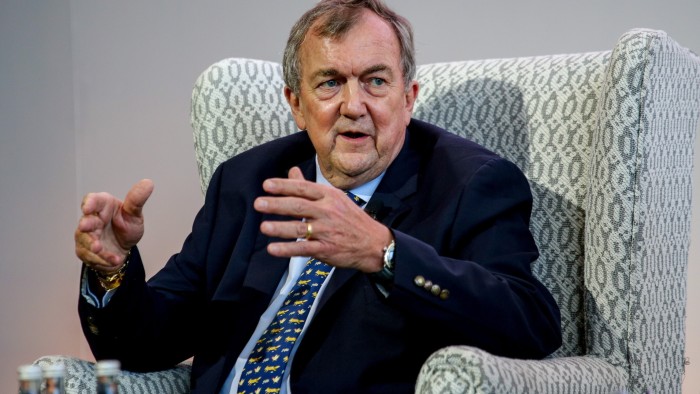Unlock the Editor’s Digest for free
Roula Khalaf, Editor of the FT, selects her favourite stories in this weekly newsletter.
Barrick Mining has stepped up efforts to find a successor for chief executive Mark Bristow who has led the world’s third-largest gold miner since 2019.
“There is board involvement in the process,” Bristow told the Financial Times, adding that the CEO succession planning efforts were “more formal now”.
He was speaking on Wednesday as Barrick, previously called Barrick Gold, reported net earnings of $474mn in the first quarter of 2025, a 60 per cent increase on the same period a year ago, thanks to record-high gold prices.
Bristow, 66, said he had committed to remaining at the company until 2028 to oversee a growth phase that includes construction of the Reko Diq copper and gold mine in Pakistan.
The $9bn investment in Balochistan province — partly funded by the International Finance Corporation, the Asian Development Bank and other lenders — will include building rail and port infrastructure as well as the construction of the mine itself.
The Canadian company is pressing ahead despite the fact that expected funding from Saudi Arabia’s Manara fund never materialised. “Things have sort of moved on,” Bristow said.
The succession planning comes as Barrick grapples with significant challenges in Mali, where four of its employees have been detained amid an escalating dispute between the company and the ruling military junta. Bristow described their incarceration for nearly six months as a “violation of human rights”.
Barrick’s Loulo-Gounkoto gold mine has been closed since January as a result of the conflict, and Bristow said the situation was becoming “financially stressed” and negatively affecting not only his company but local suppliers.
The Malian government and Barrick have yet to reach a deal over a new mining code introduced in 2023 that grants the state increased revenues from mining concessions, although other western companies have struck agreements.
The government last month closed Barrick’s offices in the capital Bamako and threatened to seize the company’s assets in the country if the group did not reopen operations at Loulo-Gounkoto.
A senior member of the committee negotiating with Barrick on behalf of the Malian government told the FT that the company had to reopen the site, “otherwise we have the right to take control of the mines, it would be completely legal”.
Bristow said negotiations with the government were continuing and his company had not “drawn a line in the sand” against reaching a deal. But he warned that the government needed to “come to the table to negotiate”. The company has also launched an arbitration case at the World Bank’s International Centre for Settlement of Investment Disputes.
Bristow, who is from South Africa, was previously the chief executive of Randgold Resources, which combined with Barrick in a 2018 deal that created one of the largest gold miners in the world.
Barrick’s share price has risen 20 per cent year to date, while the price of gold, which briefly touched $3,500 per troy ounce last month, is up 29 per cent.
Ben van Beurden, a former chief executive of Shell, and former Finnair chief Pekka Vauramo both joined Barrick’s board this month.

